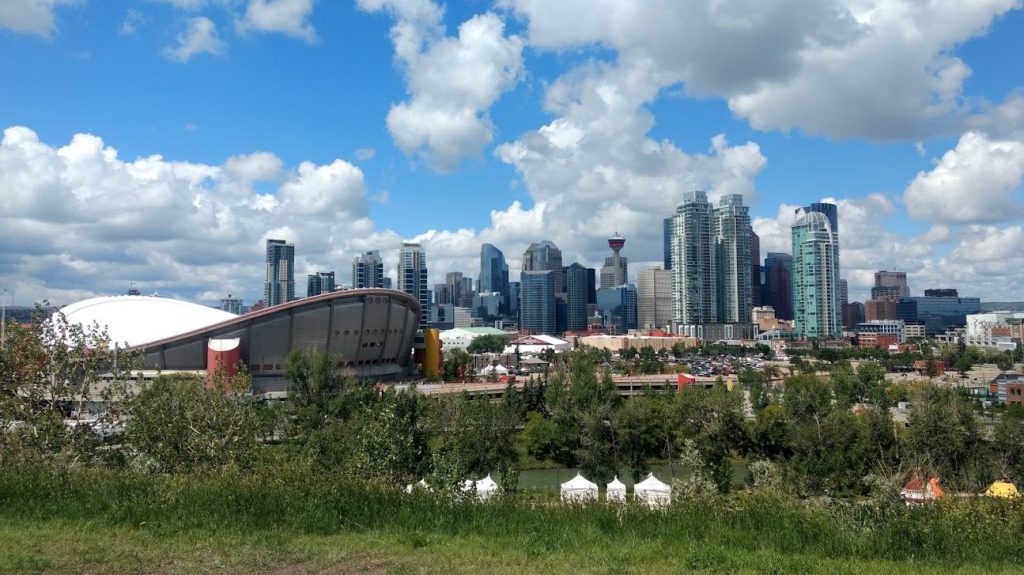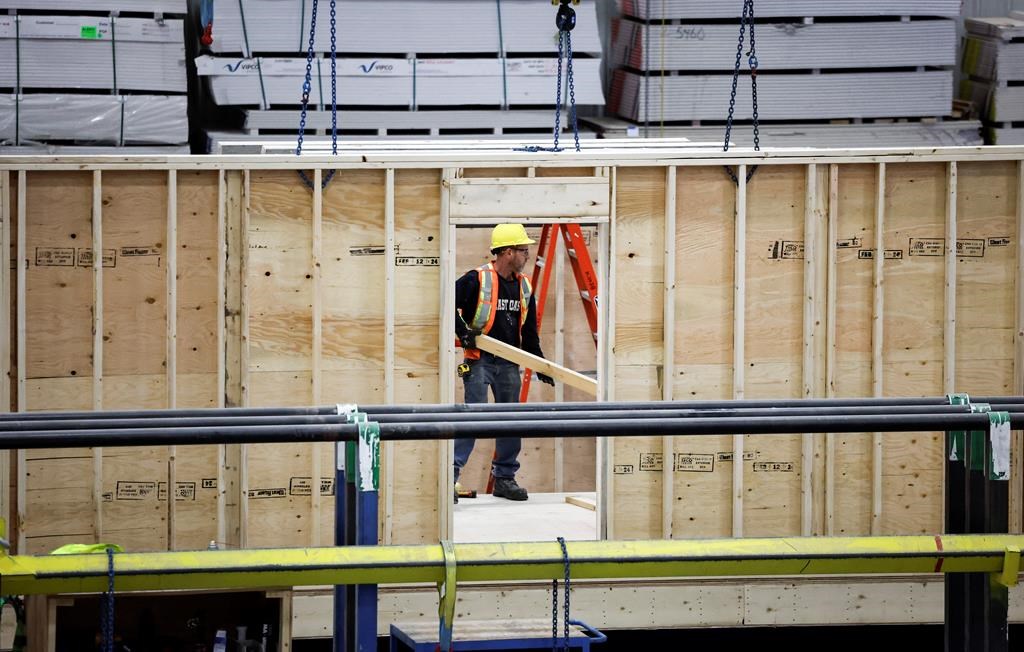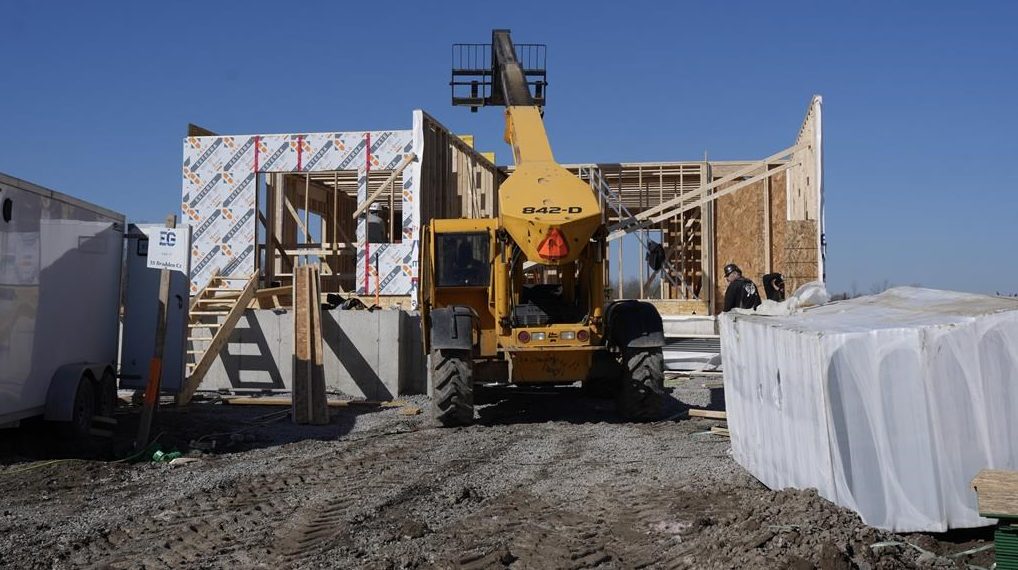‘Humiliating’: Local Palestinians react to ‘Deal of the Century’
Posted Feb 8, 2020 6:00 am.
Last Updated Feb 7, 2020 5:03 pm.
CALGARY (660 NEWS) — It has been more than a week since U.S. President Donald Trump unveiled his so-called “deal of the century”, which his administration believes can pave the way for peace in the seemingly never-ending conflict between Palestine and Israel.
Standing next to Israeli Prime Minister Benjamin Netanyahu in the White House, Trump said the deal strikes a balance between security for Israelis and statehood for Palestinians.
But there has been lots of skepticism over how effective this plan will be in ending a dispute that stretches back to the beginning of the 20th century, when the historical land of Palestine was split up at the end of the First World War.
Notably, some major concerns of Palestinians are not resolved including Israeli settlements being built in the West Bank and the Palestinians right of return to their ancestral land as laid out in the Fourth Geneva Convention of 1948.
READ MORE: Palestinian refugees insulted by Trump’s ‘shameful’ deal
Also, Palestinian leadership was not at the table during the negotiations over this deal.
As protests continue in Palestine, the diaspora in Calgary feel a close connection to the struggle — as well as a sense of despair.
“My initial response was disgust and dismay,” said Saba Amro, whose family lives in the West Bank and currently is involved with a pro-Palestinian advocacy group in Calgary. “It was absolutely humiliating.”
Amro was born in Dubai after her parents left Palestine, and they emigrated to Canada in 1995.
She tries to go back and visit her family every other year, but it is very difficult to both get there and travel through the area.
“I’m still not able to move freely within the West Bank region and area, and so I don’t have the right to movement in my own country. Which is kind of bizarre and funny to say out loud,” she said.
Her family has seen first-hand the impact of growing settlement activity, as they are surrounded by the developments at their homes in the cities Ramallah, Nablus and Hebron.
Even though international law — including UN Security Council resolutions in 1979, 1980 and 2016 — states the settlements are illegal, the Trump-led plan allows the areas they sit on to essentially be annexed by Israel, further reducing the Palestinian territory. Amro said this will be a major impact to her family as she compared it to South African-style apartheid.
“What they’re really proposing are these Bantustans, these small little pockets of Palestinians living in different parts of the West Bank,” she said. “Moving individuals from their land over into these Bantustan, ghetto-style neighbourhoods.”
Amro isn’t alone in having severe reservations over the idea.
“A slap in the face to Palestinians all over the world,” said Sally Okasha.
Okasha was also born in the United Arab Emirates, and her family is from the Gaza Strip.
“It’s not really a deal for us, it’s sort of like an ultimatum.”
Okasha also has trouble going back to the blockaded Gaza Strip to see family, and she knows the announcement is heightening their fears.
“They’ve really lost hope. In 2020 — this year — Gaza becomes unlivable. There’s no clean drinking water. Medical supplies don’t come in,” she said. “It’s an open air prison.”
“Not at all surprised,” said Mark Ayyash, who was born in Jerusalem and is now an Associate Professor of Sociology at Mount Royal University. “Even though the actual plan has just been released, the general contours of it were obvious to many commentators and analysts of the conflict.”
Ayyash said there were some key indicators before, including the United States moving their embassy to Jerusalem — even though the city is equally important to both Israelis and Palestinians.
“Many of us knew that this ‘deal’ or more properly, this diktat, was going to follow the long held logic of various political parties in Israel: maximum land with minimum Arabs. And that’s the crux of the deal.”
Ayyash added that this makes true Palestinian statehood “impossible”, and he cannot say Palestine has an independent state when he looks at the official map of the plan showing a divided West Bank and a still-isolated Gaza Strip.
Despite these concerns, the deal was met largely with approval by the international community — including Canada.
“Canada remains committed to the goal of achieving a comprehensive, just and lasting peace in the Middle East,” Foreign Affairs Minister Francois-Phillipe Champagne wrote in a statement. “Canada recognizes the the urgent need to renew efforts toward a negotiated solution to the Israeli-Palestinian conflict, and will carefully examine the details of the U.S. initiative for the Middle East peace process.”
“We favour a two-state solution that is negotiated directly by the two parties involved. We need a safe and democratic Israel working together with a safe and democratic Palestinian state. We have always moved forth that objective with our partners around the world,” said Prime Minister Justin Trudeau in the House of Commons, after being questioned about the deal by NDP MP Alexandre Boulerice.
Israeli lobby groups in Canada also responded positively to the plan.
“We support a 2-state solution, which paves way to peace between Israelis/Palestinians and ends years of conflict. The proposed US peace plan is a creative solution balancing the need for independent/prosperous Palestinian state with a safe & secure Israel,” B’nai Brith Canada wrote on Twitter.
We support a 2-state solution, which paves way to peace between Israelis/Palestinians & ends years of conflict. The proposed US peace plan is a creative solution balancing the need for independent/prosperous Palestinian state with a safe & secure Israel. #DealOfTheCentury
— B'nai Brith Canada (@bnaibrithcanada) January 28, 2020
“We encourage all parties to review the details of the plan, come to the negotiating table, and to engage constructively in the discussion to the benefit of Israelis and Palestinians alike,” added the Centre for Israeli Jewish Affairs (CIJA).
We encourage all parties to review the details of the plan, come to the negotiating table, and to engage constructively in the discussion to the benefit of Israelis and Palestinians alike. The full plan is available here: https://t.co/zoslgTVnGY
— CIJA (@CIJAinfo) January 28, 2020
The same night after the deal was announced at the White House, CIJA also hosted a wine and cheese night in Parliament which was attended by many members of the government and their staff.
This apparent green light from the Canadian government is also no surprise to ethnic Palestinians.
“Canada’s stance when it comes to Israel-Palestine has been completely complicit,” said Okasha. “They haven’t really shown any support or solidarity with the Palestinian people.”
“The thing that disappoints me the most is the silence when it comes to even acknowledging that there have been these mass, mass and vast human rights violations,” said Amro.
“I would call it, I’m sorry to say, irrelevant and inconsequential,” added Ayyash. “Canada continues to basically say things like ‘we continue to support a negotiated settlement of a two-state solution’ which is toothless and entirely meaningless at this point; but this kind of rhetoric will first and foremost not upset the Americans or the Israelis, which is Canada’s primary concern I think.”
“The kind of empty rhetoric that Canada employs — as do many other nations — simply allows them to continue to ignore the reality of dispossession.”
READ MORE: In blessing annexation, Trump erodes an international norm
In Canada and around the world, Palestinians and their allies try to bring the situation to the forefront through activism that has largely taken the form of the Boycott, Divest and Sanction (BDS) movement, which is a pledge to avoid buying products made in Israel.
It is a similar method that was taken during South African apartheid, however in this case it is labelled as anti-Semitic — including in statements made by the Prime Minister and several high-level officials in the governing Liberal Party.
The fight doesn’t end on the ground either, as lengthy protests have continued — including during the Great March of Return demonstrations in the Gaza Strip which stretched from 2018 until the end of 2019.
While at times these efforts can seem fruitless, they are also inspiring for local Palestinians.
“As a Palestinian, it’s very empowering to see and I think it’s so important. One of the things that makes me the proudest to be Palestinian is that the fight never really stops,” said Amro.
“I’m a firm supporter of (BDS), because when we think back to South Africa apartheid, that was the way to break it down,” said Okasha. “And it’s completely peaceful.”
“Despite being major underdogs throughout the history of the conflict, the Palestinian people have refused to give up their right to the land, their existence on the land, and their connection to the land. They will remain there, and they will continue to resist their dispossession,” said Ayyash.
While they may be thousands of kilometres away from their homeland, and they feel the pain of their families that remain under the occupation, there’s a tough balance between trying to hold out some sense of hope but knowing this may be a losing battle.
“Palestinians have been dehumanized for years and years and years, and decades and decades and decades,” said Okasha. “I feel it will give Palestinians an inspiration to fight more.”
“It actually makes me very proud to see people going out and hitting the streets, and probably knowing that the outcome is not going to be any movement or any changes,” said Amro. “We have the right to be here and we are going to stay here and we are going to come out and we are going to make some noise. We will never accept this ridiculous peace plan.”
“As it has been for the past 80-90 or so years, the people of Palestine will continue to suffer, and they will continue to resist,” concluded Ayyash. “Palestinians are not going to simply go away.”










